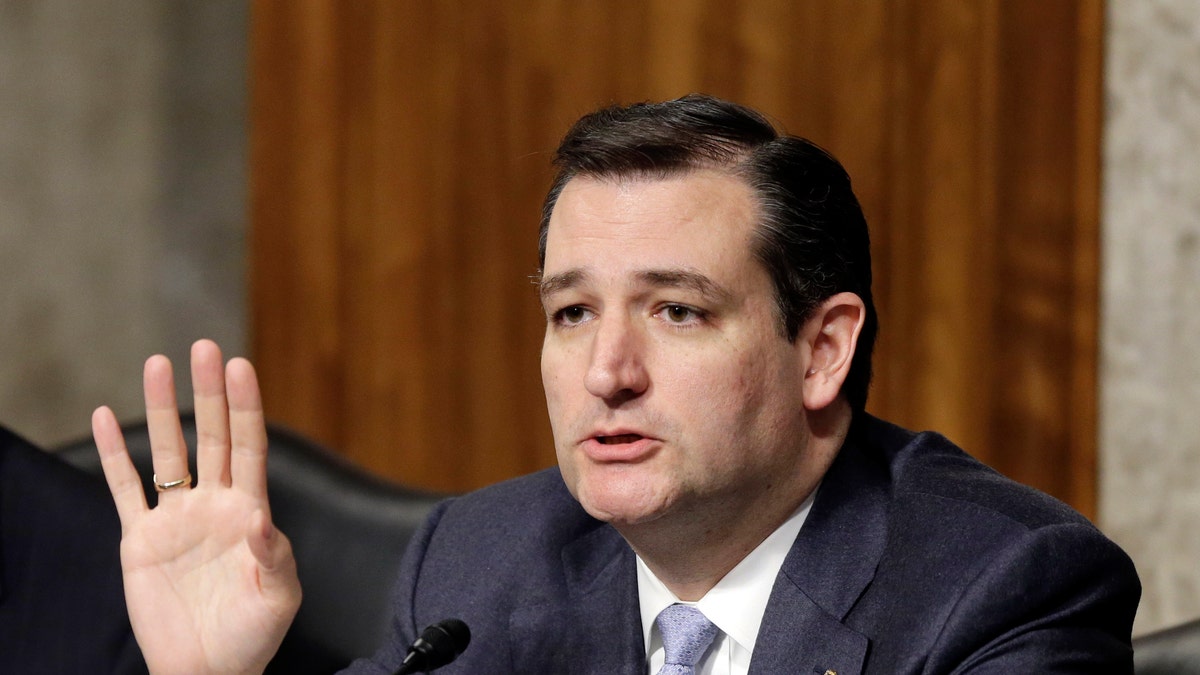
Sen. Ted Cruz, R-Texas. (The Associated Press)
Texas Gov. Rick Perry and U.S. Sen. Ted Cruz came out swinging Monday against extending Medicaid coverage in the state.
And soon after, Democratic stars Julian Castro, the San Antonio mayor and his brother Joaquin, a U.S. congressman, staged a counter-punch, demanding that Texas accept Medicaid expansion.
In a joint appearance at a roundtable with Cruz, Perry said expanding Medicaid would “bankrupt” Texas, which has the highest number of uninsured people of any state. He vowed not to let an expansion, which is a key part of the White House-backed health care reform, take hold in the state.
“Medicaid expansion is a misguided, and ultimately doomed, attempt to mask the shortcomings of Obamacare. It would benefit no one in our state to see their taxes skyrocket and our economy crushed as our budget crumbled under the weight of oppressive Medicaid costs,” Perry said, according to the Houston Chronicle. “Texas doesn’t need another mandate, but the flexibility to care for our own in a manner that makes sense both effectively and financially.”
Cruz wants to repeal the entire health care reform law.
"For those states buying into this, they will come to rue the day," Cruz said, according to published reports. He said he was proud that Texas was pushing back against an expansion while other states have been “giving in.”
The Republican leaders, who also included Sen. John Cornyn, say that instead of a Medicaid expansion that would hurt the state economy, there should be block grants that would allow Texas, not the federal government, to determine how to implement Medicaid in the state.
Advocates say extending Medicaid could provide up to 1 million Texans some health care coverage.
Later, the Castro brothers held their own state Capitol event calling Medicaid expansion "the right thing to do." They said it will help more than a million poor, uninsured Hispanics.
"Even though many states with staunch Republican governors have said expanding Medicaid is the smart thing to do, the governor has stubbornly refused to do so," Joaquin Castro said, according to published reports.
His brother, Julián, said: "As elected officials, the public hires us not to do the ideological thing but to do the smart thing. People from across the political spectrum … have suggested that Texas should do the right thing and accept the expansion of Medicaid."
Medicaid is financed mostly by Congress, though states have to put in their own money to qualify for the cash from Washington. The federal amount is determined by a state's per-capita income, with poorer states getting more help.
President Obama's law mandated that states open Medicaid to everyone with household income up to 138 percent of the federal poverty rate — $15,420 a year for an individual or $31,812 for a family of four.
The federal government would cover all costs of new Medicaid patients from 2014 to 2016 and pick up most of the price tag after that, requiring states to pay up to 10 percent.
The existing Medicaid population would continue under the old formula. In its ruling on the law, the Supreme Court left the details alone, but declared that states could choose whether to expand.
Hospital and physician lobbying groups around the country have endorsed a bigger Medicaid program.
The Associated Press contributed to this story.




